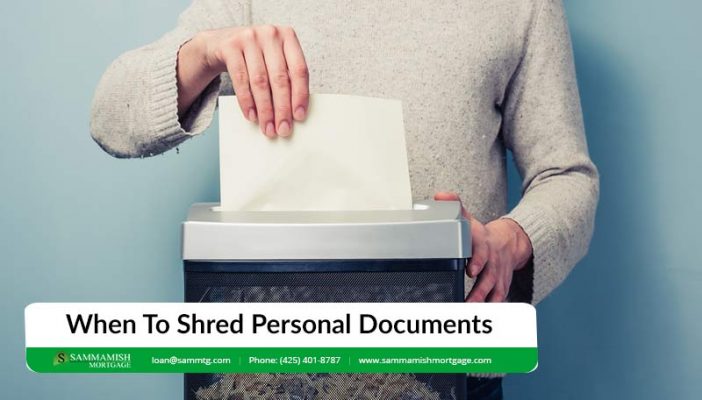No Obligation and transparency 24/7. Instantly compare live rates and costs from our network of lenders across the country. Real-time accurate rates and closing costs for a variety of loan programs custom to your specific situation.

How do you know what happens to your documents when you put a piece of paper in the trash? It can be difficult to know who is seeing it and what they are doing with it. It isn’t very common to burn trash anymore; therefore you can be sure that your paper garbage or recycling is likely to pass through several hands on its way to a landfill or recycling center.
Important documents – including anything to do with your financial information or anything relating to the purchase or sale of a home – should be discarded of carefully so they don’t get into the wrong hands. Here are some tips to follow.
Every step that occurs once the trash leaves your control has risk that someone will find personal information they can use to cause you harm. One way to safeguard personal information is to shred it before it goes into the trash.
Shredding devices are available at most office supply stores. Cross-cut shredders provide more security than strip-cut shredders. You may want to consider one depending on your level of concern. Shredding services or shredding events are often offered by financial institutions or community organizations.
Properly destroying sensitive personal information, such as that contained within documents that pertain to a recent home purchase, is a key step in helping to keep your identity secure. You really should shred any documents containing personal information, but be cautious not to shred financial documents that you may still need.
The Better Business Bureau offers these guidelines on when to shred:
After you buy a home, is it necessary to hold onto all those documents? What about after a few years have passed? Should you still hang on to them? You don’t want to have to file all of the paperwork if it’s not necessary, especially if your filing cabinet is starting to burst at the seams. But you also don’t want to throw out something important.
Are you considering buying a home some time soon? Sammamish Mortgage can help. We are a local mortgage company serving the broader Pacific Northwest region, including Washington state, Idaho, Colorado, and Oregon. We are proud to offer a wide variety of mortgage programs and products with flexible qualification criteria. Please contact us if you have any questions or are ready to start the mortgage application process.


Whether you’re buying a home or ready to refinance, our professionals can help.
{hours_open} - {hours_closed} Pacific
No Obligation and transparency 24/7. Instantly compare live rates and costs from our network of lenders across the country. Real-time accurate rates and closing costs for a variety of loan programs custom to your specific situation.